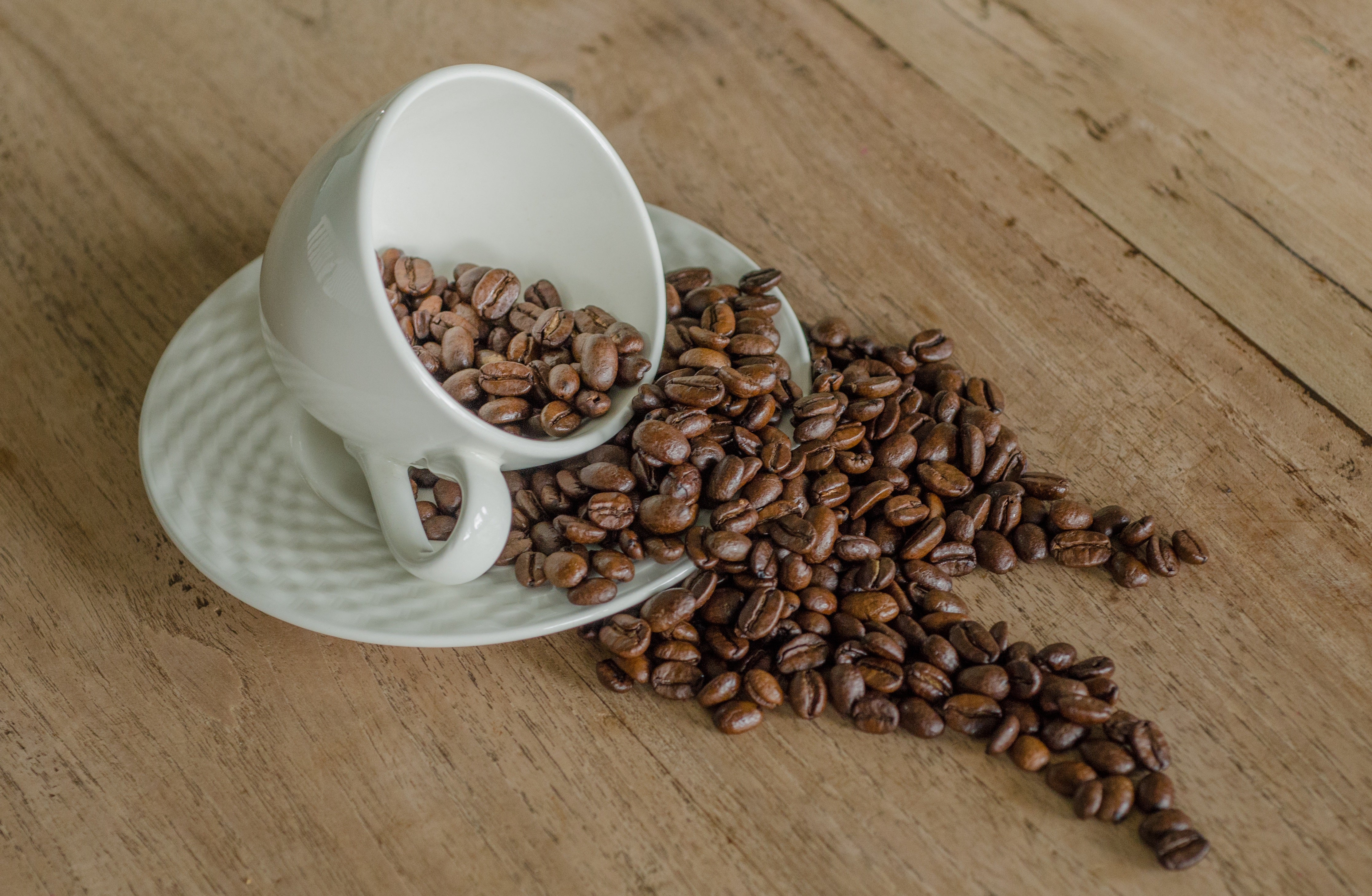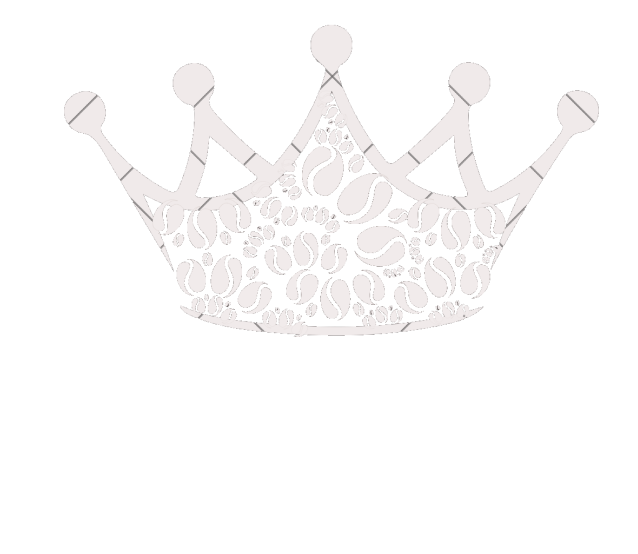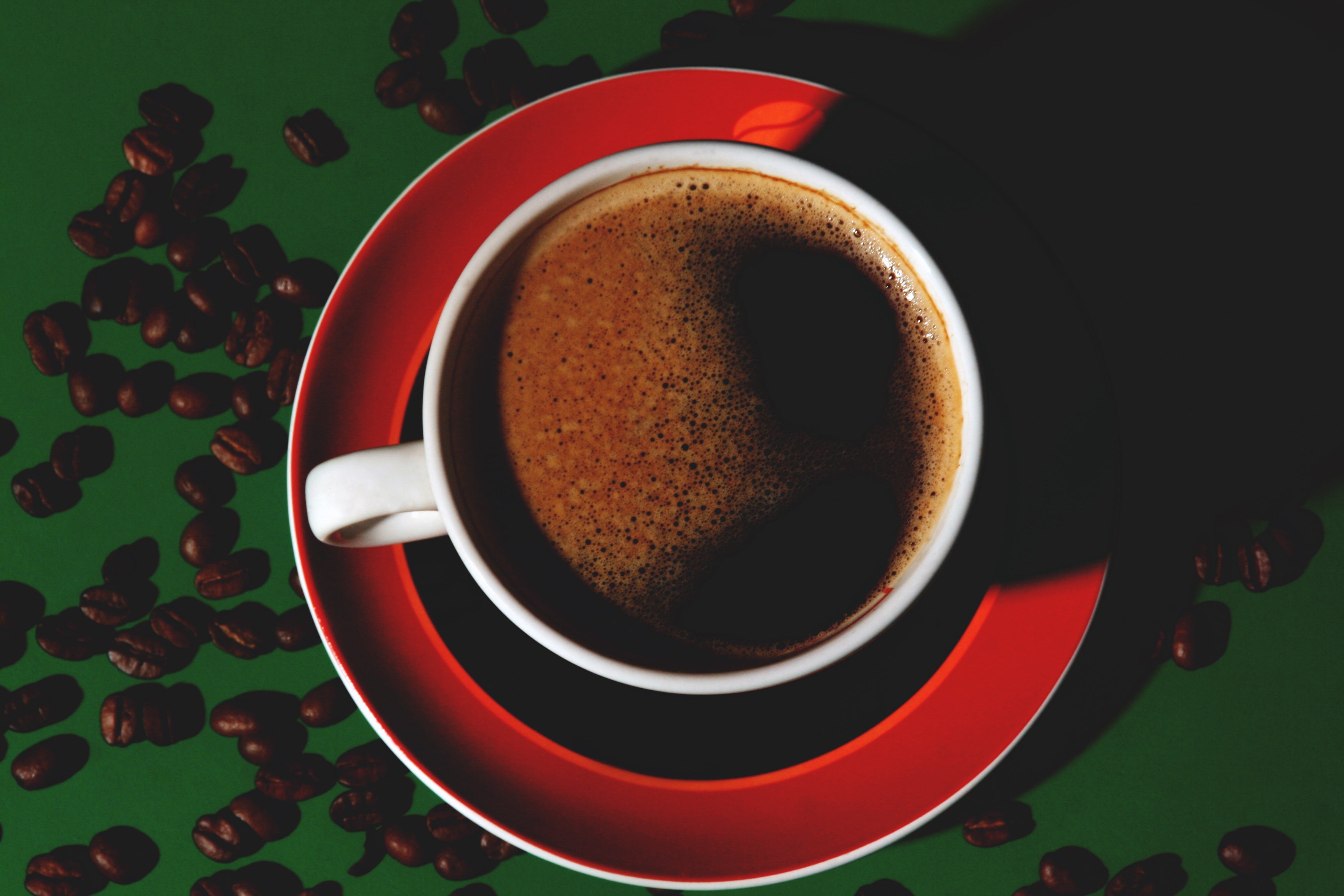
Decaffeinated Coffee: How It's Made and What the Differences Are
Dowiedz się, jak powstaje kawa bezkofeinowa, czym różni się od zwykłej kawy i dlaczego coraz więcej osób ją wybiera.
Introduction
Decaffeinated coffee is a great alternative for those who love the taste of coffee but want to reduce or eliminate their caffeine intake. While caffeine is known for its stimulating effects, many people prefer decaffeinated coffee for health reasons or simply to enjoy the beverage without the stimulating effects. In this article, we'll explore how decaffeinated coffee is made, how it differs from regular coffee, and what to look for when choosing a good decaf.
How is coffee decaffeinated?
The decaffeination process involves removing caffeine from green (unroasted) coffee beans. There are several methods for extracting caffeine, and the most common are as follows:
-
Chemical solvent method (direct and indirect method) : This is one of the most widely used methods in the industry. In the direct method , the beans are treated with chemical solvents, such as methylene chloride or ethyl acetate, which bind to the caffeine, allowing it to be extracted. The beans are then rinsed to remove any remaining solvent. In the indirect method , the beans are soaked in hot water, allowing the caffeine to dissolve. The water is then treated with solvents to remove the caffeine, and the beans are reintroduced into the same water to absorb the oils and flavors.
-
Water method (Water Process) : This method, also known as the Swiss Water Process , uses only water to remove caffeine. The beans are soaked in hot water, allowing the caffeine to be extracted. The water, which contains the natural flavors of the coffee, then passes through a carbon filter that traps only the caffeine. The beans are then re-soaked in the same water, preserving much of the original flavor.
-
CO₂ method (carbon dioxide) : This is one of the most innovative and natural decaffeination methods. The beans are placed in a pressurized container with liquid carbon dioxide. The CO₂ acts as a solvent, binding to the caffeine molecules and allowing them to be extracted without the use of chemicals. This method is considered one of the safest and most environmentally friendly, while also better preserving the flavors of the coffee.
Differences from regular coffee
While decaffeinated coffee is often chosen to reduce caffeine consumption, it has some differences from regular coffee, both in terms of taste and nutritional content.
-
Flavor : The decaffeination process can affect the flavor of the coffee, as some essential oils and aromatic compounds may be lost during caffeine extraction. However, modern methods like the Swiss Water Process and CO₂ decaffeination are better at preserving the original flavor of the coffee. Generally, decaf coffee may have a slightly less intense flavor than regular coffee, but technological advancements have significantly improved the quality of decaf in recent years.
-
Residual caffeine : Even decaffeinated coffee contains a small amount of caffeine. By law, for coffee to be labeled as “decaffeinated,” it must contain less than 0.1% caffeine in the final product. This means that while caffeine is greatly reduced, it is not completely eliminated. On average, a cup of decaf contains about 2-5 mg of caffeine, compared to 95-200 mg in a cup of regular coffee.
-
Nutritional properties : Decaffeinated coffee retains most of the nutritional benefits of regular coffee. It is rich in antioxidants, which help fight oxidative stress in the body, and it maintains many of the chlorogenic acids, which may have positive effects on metabolism and blood sugar control. However, the amount of these compounds may vary depending on the decaffeination method used.
Why choose decaffeinated coffee?
There are several reasons why people choose decaffeinated coffee over regular coffee:
-
Caffeine sensitivity : Some people are particularly sensitive to caffeine and may experience side effects like anxiety, insomnia, palpitations, or nervousness even with small amounts of caffeine. For these individuals, decaffeinated coffee is a great alternative, allowing them to continue enjoying coffee without these effects.
-
Health issues : People with certain health conditions, such as hypertension or stomach disorders, may be advised to reduce caffeine intake. In these cases, decaf allows them to enjoy coffee without aggravating their symptoms.
-
Evening consumption : Many coffee lovers enjoy a cup after dinner, but caffeine can interfere with sleep. Decaffeinated coffee offers a solution, allowing them to enjoy the drink without compromising a good night's sleep.
The myth of "less flavorful" decaf coffee
One of the most common criticisms of decaffeinated coffee is that it is "less flavorful" than regular coffee. While the decaffeination process can slightly alter the flavor, modern techniques have made great strides in preserving the coffee's aromatic integrity. To get a high-quality decaf, it is important to choose blends or beans from specialized roasters who use natural and controlled methods to preserve the taste.
Conclusion
Decaffeinated coffee is a versatile option for those who want to limit caffeine consumption without giving up the pleasure of coffee. Thanks to the various decaffeination methods available today, it's possible to find decaf that retains much of the taste and aroma of regular coffee. Whether you choose decaf for health reasons, to enjoy an evening coffee, or simply to try something new, this drink continues to offer a rich and satisfying coffee experience.

